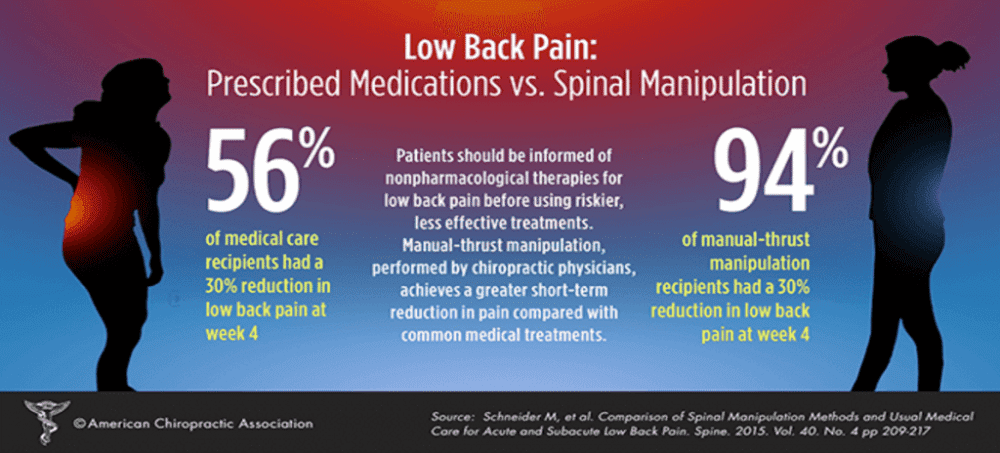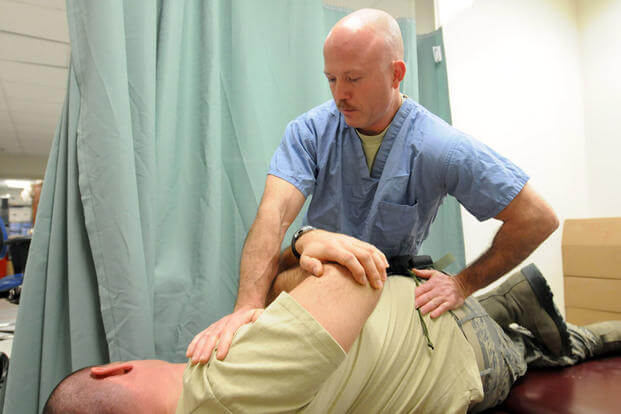Health-related Quality of Life Among United States Service Members with Low Back Pain Receiving Usual Care plus Chiropractic Care plus Usual Care vs Usual Care Alone
SOURCE: Pain Medicine 2022 (Jan 21); pnac009 [EPUB]
UCLA Department of Medicine,
Los Angeles, CA.
Department of Epidemiology,
University of Iowa,
Iowa City, IA.
Objective: This study examines Patient-Reported Outcome Measurement Information System (PROMIS®)-29 v1.0 outcomes of chiropractic care in a multi-site, pragmatic clinical trial and compares the PROMIS measures to: 1) worst pain intensity from a numerical pain rating 0-10 scale, 2) 24-item Roland-Morris Disability Questionnaire (RMDQ); and 3) global improvement (modified visual analog scale).
Design: A pragmatic, prospective, multisite, parallel-group comparative effectiveness clinical trial comparing usual medical care (UMC) with UMC plus chiropractic care (UMC+CC).
Subjects: 750 active-duty military personnel with low back pain.
Methods: Linear mixed effects regression models estimated the treatment group differences. Coefficient of repeatability to estimate significant individual change.
Results: We found statistically significant mean group differences favoring UMC+CC for all PROMIS®-29 scales and the RMDQ score. Area under the curve estimates for global improvement for the PROMIS®-29 scales and the RMDQ, ranged from 0.79 to 0.83.
There is more like this @ our:
LOW BACK PAIN Section and the:
NON-PHARMACOLOGIC THERAPY Section and the:
Conclusions: Findings from this pre-planned secondary analysis demonstrate that chiropractic care impacts health-related quality of life beyond pain and pain-related disability. Further, comparable findings were found between the 24-item RMDQ and the PROMIS®-29 v1
Keywords: PROMIS®; chiropractic care; clinical trial; health-related quality of life; low back pain; military; patient outcome assessment; usual medical care.







Leave A Comment